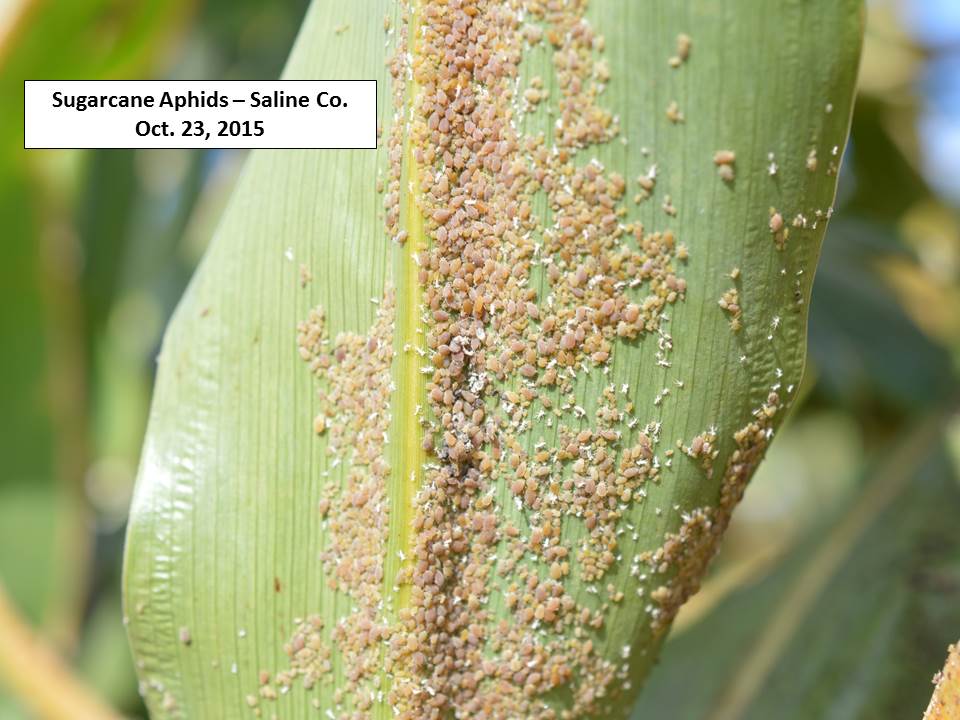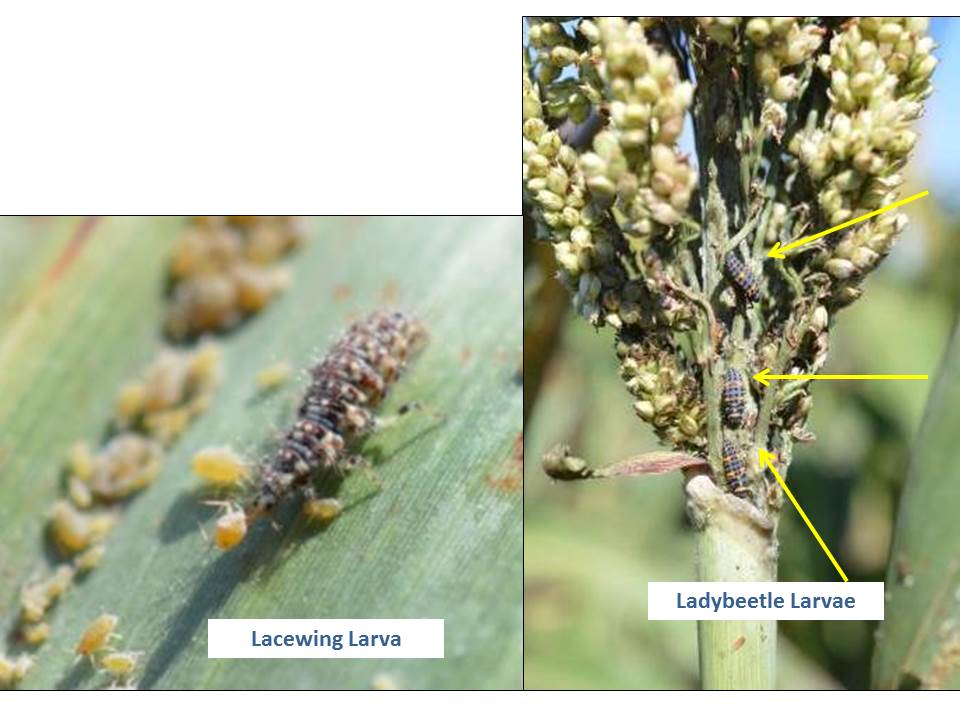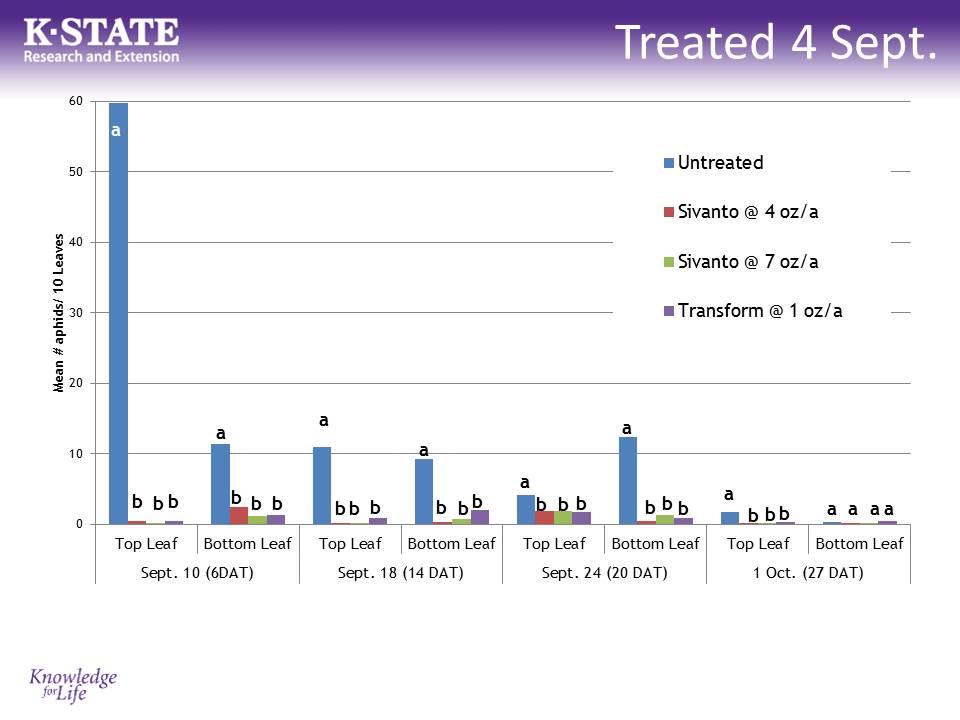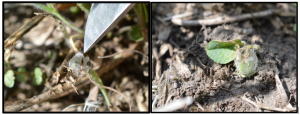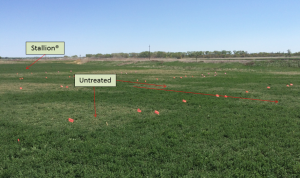–by Dr. Jeff Whitworth, Dr. Holly Schwarting and JR Ewing
Sugarcane aphids were still active in north central KS on 23 and 27 October, as were the beneficials (see pics). Fields were being harvested and getting acceptable yields (growers reported 80 to 160 bu/acre, which they said was usual for the fields involved) without much interference caused by the stickiness of the honeydew (and it is sticky).
Below are the results of sugarcane aphid efficacy trials conducted in Saline Co. Aphid populations were, in our opinion, ideal for conducting trials of this nature because there were enough aphids to show any differences caused by the treatments, but not so many that the plants were overwhelmed or that the grower sprayed the field (thereby over-spraying these plots).
Means within a column followed by the same letter are not significantly different (P>0.05; PROC ANOVA; Mean comparison by LSD [SAS Institute 2003]).
Means within a column followed by the same letter are not significantly different (P>0.05; PROC ANOVA; Mean comparison by LSD [SAS Institute 2003]).
